Can Cats Eat Chicken Bones? A Guide to Keeping Your Feline Safe
- 27 Feb 2025 14:41
As a cat owner, you may have wondered whether it's safe to share some of your chicken with your feline friend, especially when it comes to the bones. After all, cats are carnivores, and chicken bones are a natural part of a bird's body. However, it’s crucial to understand the potential dangers of feeding chicken bones to your cat before doing so. In this article, we will explore whether cats can eat chicken bones, the risks involved, and how to safely handle chicken when feeding it to your pet.
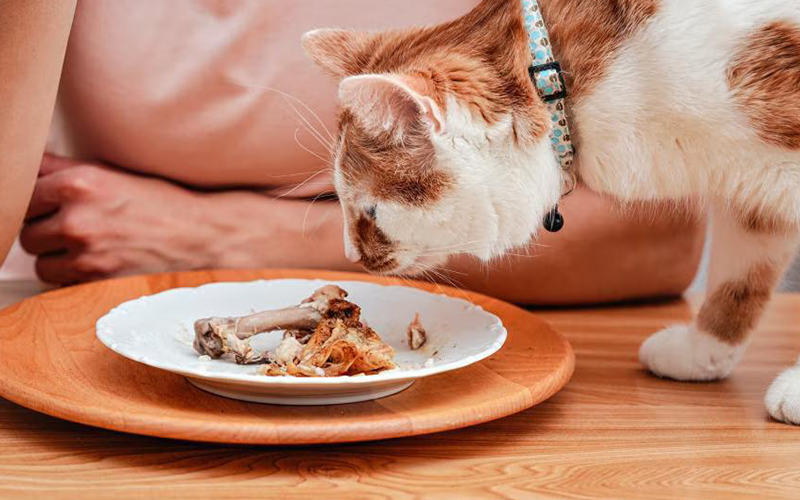
The Risks of Feeding Chicken Bones to Cats
While the idea of feeding your cat a chicken bone may seem natural, chicken bones can be extremely dangerous for cats. Here are the key reasons why you should avoid feeding chicken bones to your cat:
Bone Splintering: One of the primary dangers of chicken bones is that they can splinter when chewed. Chicken bones are small and brittle, especially after cooking, and can easily break into sharp, jagged pieces. These splinters can cause serious injuries to your cat’s mouth, throat, esophagus, or digestive tract. In the worst case, sharp bone fragments can pierce internal organs, leading to life-threatening injuries.
Choking Hazard: Chicken bones, especially those that are small or broken, can become a choking hazard for your cat. If your cat tries to swallow a bone whole or chews a bone incorrectly, it could get lodged in the throat, blocking the airway and making it difficult to breathe. This could result in choking, which requires immediate attention and emergency care.
Intestinal Blockage: Even if the bone doesn’t splinter or cause choking, it can still pose a risk to your cat’s digestive system. Swallowed bones can get stuck in the intestines, leading to a blockage. This can cause severe pain, vomiting, and potentially a life-threatening situation if not treated promptly.
Digestive Upset: Eating bones can also lead to digestive issues such as constipation, discomfort, or diarrhea. The bones are hard and difficult to digest, which can cause stomach irritation and other gastrointestinal problems in your cat.
Can Cats Eat Raw Chicken Bones?
Some people may argue that raw chicken bones are safer than cooked ones, as they are less likely to splinter. While raw chicken bones may pose fewer risks than cooked bones, they are still not recommended for your cat. Even raw bones can cause injury if they are large or if the cat tries to swallow them without chewing properly. Additionally, raw chicken can carry harmful bacteria like Salmonella or Campylobacter, which can lead to serious infections in both cats and humans.
If you are keen on offering raw chicken to your cat, it’s crucial to consult with your veterinarian to understand how to do so safely. In general, raw bones are better left avoided because of the potential for bacterial contamination and the risk of choking or injury.
How to Safely Serve Chicken to Your Cat
If you want to treat your cat to some chicken, there are safer alternatives to offering bones. Here are some tips for feeding your cat chicken without risking their health:
Remove the Bones: Always ensure that any chicken you offer to your cat is boneless. Remove all bones from the meat before serving it. Cats can enjoy the protein and nutrients from the chicken without the dangers associated with bones.
Cooked Chicken (Without Seasoning): Offer your cat small pieces of cooked, boneless chicken. Be sure that it is plain—avoid using any seasonings, sauces, or oils, as these can be harmful to cats. Many seasonings, such as garlic and onion, are toxic to cats and should never be used in their food.
Shredded Chicken: Shredded chicken can be a great way to serve the meat to your cat. This makes it easier for them to eat and digest, and it also minimizes the risk of them accidentally swallowing larger pieces of chicken.
Chicken-Based Cat Food: If you want to incorporate chicken into your cat's diet, consider offering high-quality commercial cat food that contains chicken as a primary ingredient. Many wet and dry cat foods are formulated with chicken and are nutritionally balanced to meet your cat’s dietary needs.
Signs of Bone-Related Injury in Cats
If your cat has accidentally eaten a chicken bone or if you suspect they’ve swallowed a bone fragment, keep an eye out for the following signs of injury or distress:
Vomiting: Vomiting is one of the most common signs that something has gone wrong with your cat’s digestion, especially if they’ve swallowed a bone.
Loss of Appetite: If your cat refuses to eat or shows a lack of interest in food, it could be a sign that they are experiencing discomfort or pain.
Difficulty Swallowing or Breathing: If your cat is having trouble swallowing or is coughing or gagging, it could indicate that a bone is stuck in their throat.
Abdominal Pain or Swelling: If your cat is acting lethargic, is drooling excessively, or has a bloated abdomen, this could indicate an intestinal blockage caused by the bone.
Lethargy: A cat that seems unusually tired or weak after eating a bone may be experiencing an injury or digestive distress.
If any of these symptoms appear, contact your veterinarian immediately. They may need to perform diagnostic tests or treatments, such as x-rays or endoscopy, to locate and remove any bone fragments or address any injury.
Conclusion: Can Cats Eat Chicken Bones?
In conclusion, chicken bones are not safe for cats. Whether cooked or raw, bones can pose serious health risks, including choking, bone splinters, intestinal blockages, and digestive issues. If you want to treat your cat to some chicken, always ensure that the meat is boneless and prepared without harmful seasonings or additives.
For the safest approach, focus on providing your cat with a balanced diet that includes high-quality commercial food specifically designed to meet their nutritional needs. If you're ever unsure about what foods are safe for your cat, it's always a good idea to consult with your veterinarian.
Additionally, for ongoing pet health support and advice, consider using PettureX, an AI-powered pet health assistant. PettureX offers 24/7 consultations and personalized guidance to help you keep your cat healthy and well-fed, making sure you're always informed about the best choices for your furry friend.
Related
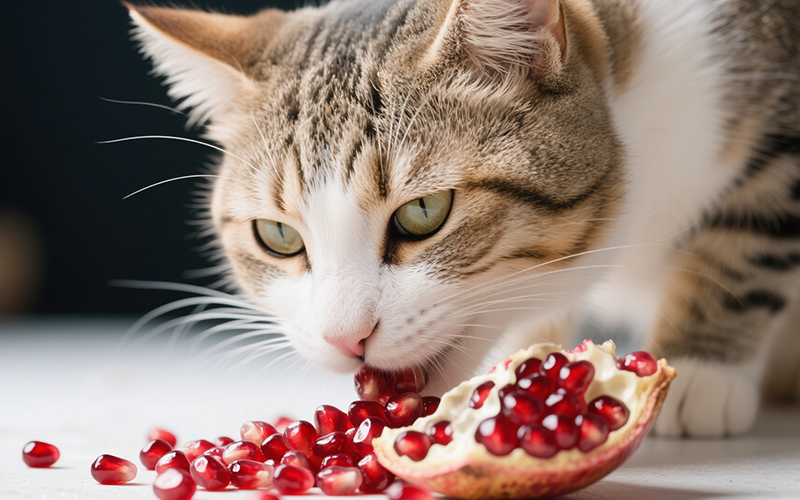
Pomegranate Peril: Can Cats Eat the Seeds Safely? A Vet-Reviewed Guide
- 25 Apr 2025
Prickly Problem: Can Cats Eat Pineapple Leaves Safely? A Vet-Reviewed Risk Analysis
- 25 Apr 2025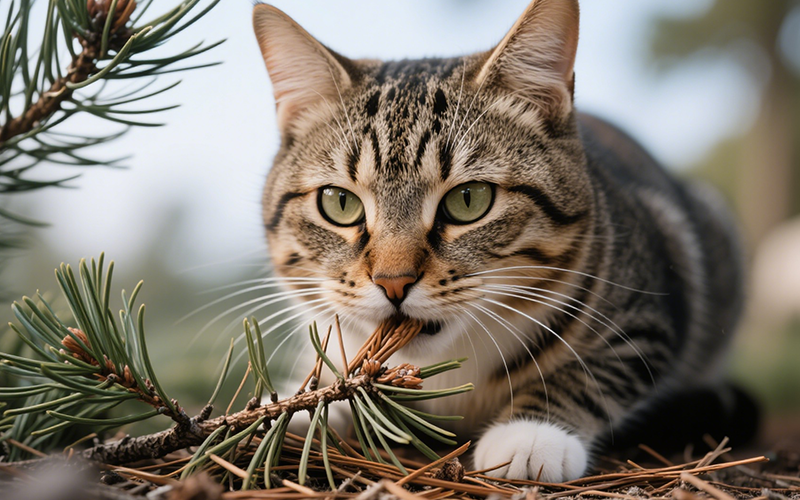
The Prickly Truth: Can Cats Eat Pine Needles Safely? A Guide for Concerned Owners
- 24 Apr 2025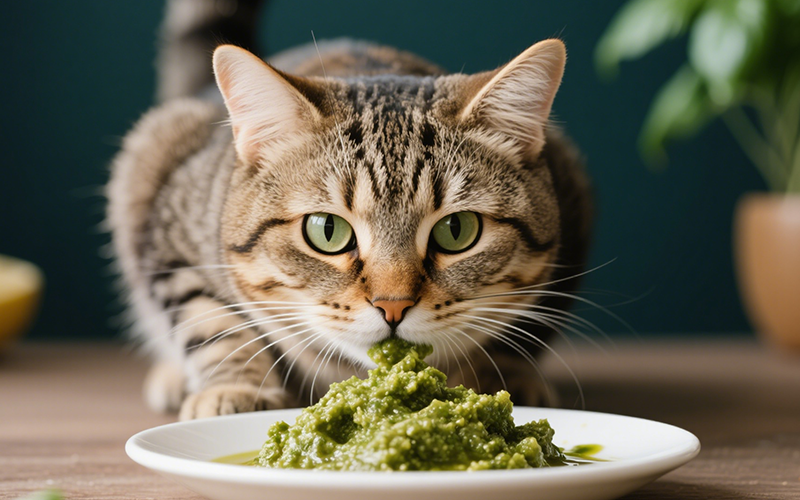
Pesto & Paws: A Dangerous Mix? Can Cats Eat Pesto Safely?
- 24 Apr 2025
Persimmons and Paws: Can Cats Safely Eat This Autumn Fruit? A Vet-Reviewed Guide
- 23 Apr 2025
Nutritional Yeast for Cats: Savory Sprinkle or Health Hazard? A Vet-Reviewed Guide
- 23 Apr 2025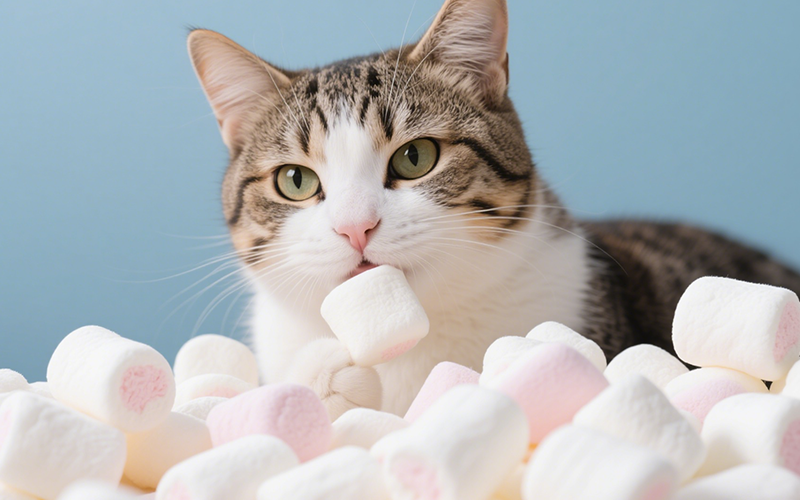
Marshmallows and Cats: A Puffy Problem? Why Vets Say No to This Sugary Snack
- 22 Apr 2025
Kefir for Kitties? A Veterinarian-Reviewed Guide to Safety, Benefits & Risks
- 22 Apr 2025
The Burning Question: Can Cats Eat Jalapenos? A Comprehensive Safety Guide
- 21 Apr 2025
Cool Temptation: Can Cats Eat Ice Cream Safely? The Vet-Backed Truth
- 21 Apr 2025
